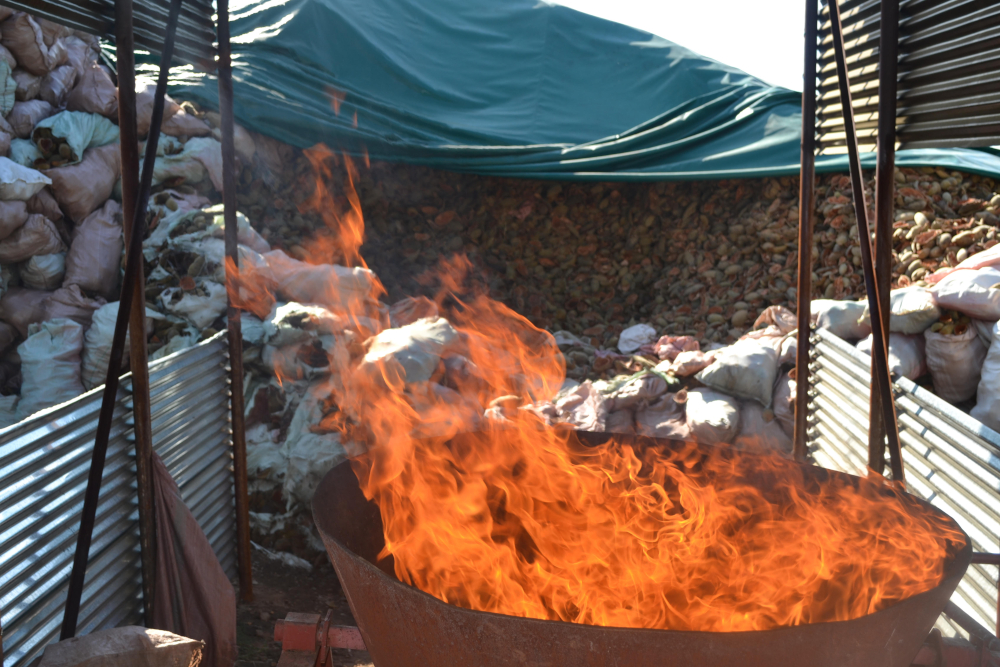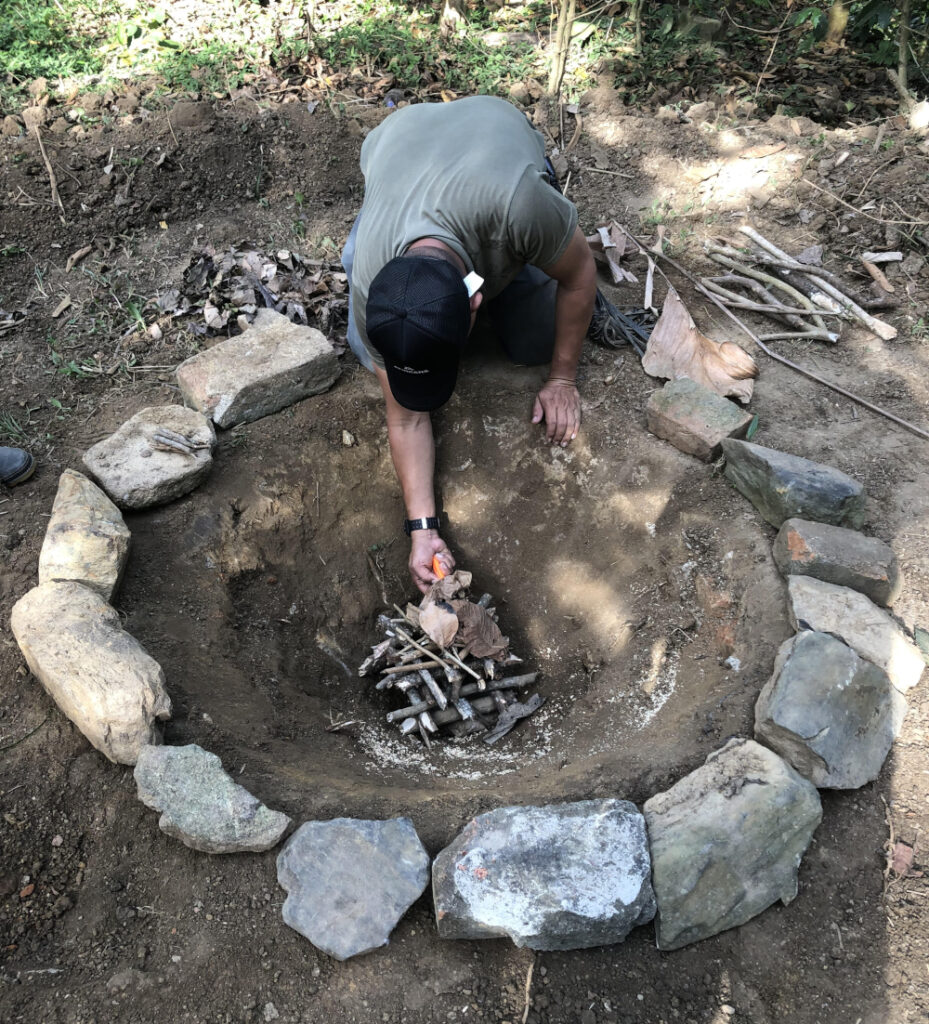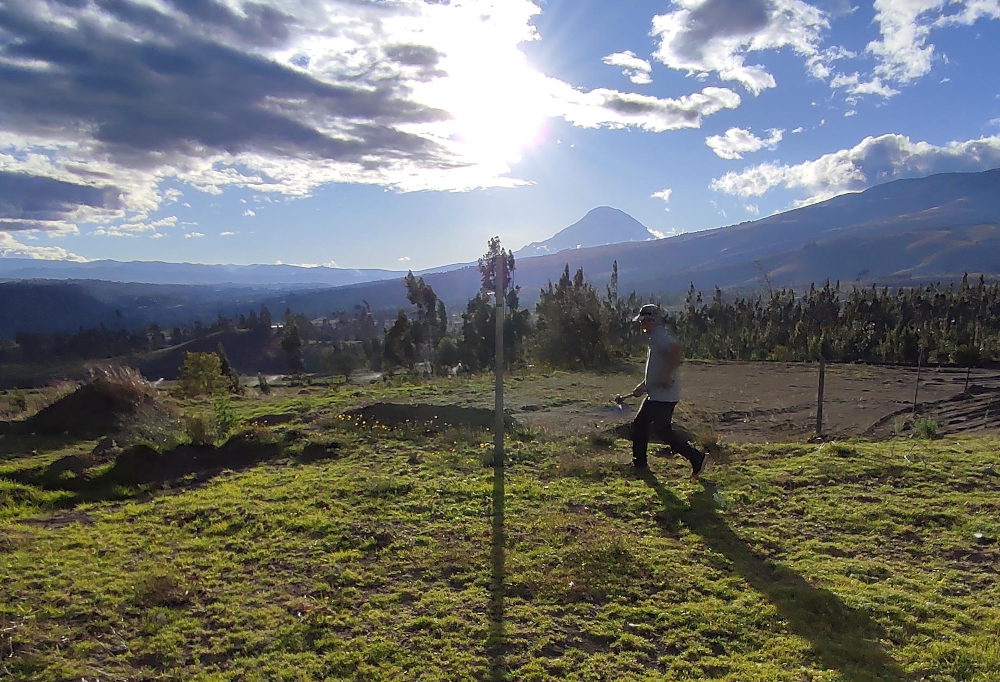A cannabis farming cooperative in Ecuador’s northern Amazon will work with German specialists to optimize biochar production for carbon dioxide removal and soil regeneration.
Cooperativa Ananda and Hamburg-based CarbonConnect announced a strategic agreement that also includes the development of a model system for certifying carbon credits.
“Through this synergy, the impact of biochar production and improving livelihoods of farmers in the northern Amazon of Ecuador through sales of CO2 credits, can begin,” said Nando Knodel, co-founder and managing director of CarbonConnect.
Artisanal production
Under a letter of intent outlining the cooperation, CarbonConnect and Ananda will provide hemp farmers and medical marijuana growers training in low-cost artisanal production methods for biochar, and take an active role in auditing CO2.
Part of the carbon credits generated are to be paid out to Ananda and individual farmers whose waste from marijuana and hemp crops is turned into the biochar. Also, some biochar is returned to farmers to spread in their fields, benefiting both soil health and crop performance.
‘Net-negative’ emissions
CarbonConnect calculates CO2 removals by subtracting any greenhouse gas created through biochar processing from that sequestered in the biochar, to reach “net-negative” emissions. The company has exclusive rights to the credits that emerge.
CarbonConnect credits are certified by Carbon Standard International, which verifies methodologies and projects that generate tradable carbon credits. Such third-party certification ensures that the credits are high quality and reflect the actual reduction of CO2 emissions — making them worth the money being paid for them and assuring buyers that carbon accounted for is the result of a transparent evaluation.
The remaining credits can be sold on the open market.
‘Social & climatic impact’
Ananda, a multi-disciplinary agriculture co-op based in the city of Riobamba in Chimborazo province, is a partner with the El Dorado de Cascales farmers association, which holds licenses for medicinal cannabis and industrial hemp farming.
“We are at the right time to initiate projects of great social and climatic impact in Ecuador,” said Sebastián Moreno, founder and manager of Cooperativa Ananda. “The partnership with CarbonConnect will allow us to tokenize and monetize the long-term capture and removal of CO2.”
The Ecuadorian Amazon and the Amazon rainforest as a whole face a vicious cycle of threats from climate change, deforestation, and water pollution from gold mining. Climate conditions growing hotter and drier in the Amazon make it more susceptible to fires and disrupting rain patterns.
Projects in LatAm, Africa
CarbonConnect also has one project up and running in Africa, and a second project in Latin America that is in the development phase.

CarbonConnect helps farmers develop low-cost methods for producing biochar in simple, locally-produced kilns (above) or burn pits (below).

In Zimbabwe, the company helped the Harare-based Organic Farming Academy (OFA) set up a first-of-its-kind production facility that makes biochar from baobab husk left over after the processing of baobab powder. With support from the German Ministry of Economic Cooperation and Development, CarbonConnect worked with OFA in developing a locally made Kon-Tiki type kiln in which the waste is mixed with compost and applied back into the soil by farmers in the region. In addition to biochar operations, the Organic Farming Academy trains smallholder and wild plant collector families for EU certification of organic products.
In Colombia, CarbonConnect is working with the Atinkana reserve in the Valley of the Sierra Nevada and a farmer network that covers 150 hectares. The vision for that project is to use waste from coffee and cocoa production, as well as broken tree parts and stems, to produce biochar in soil pits to help forestation and water conservation efforts.

